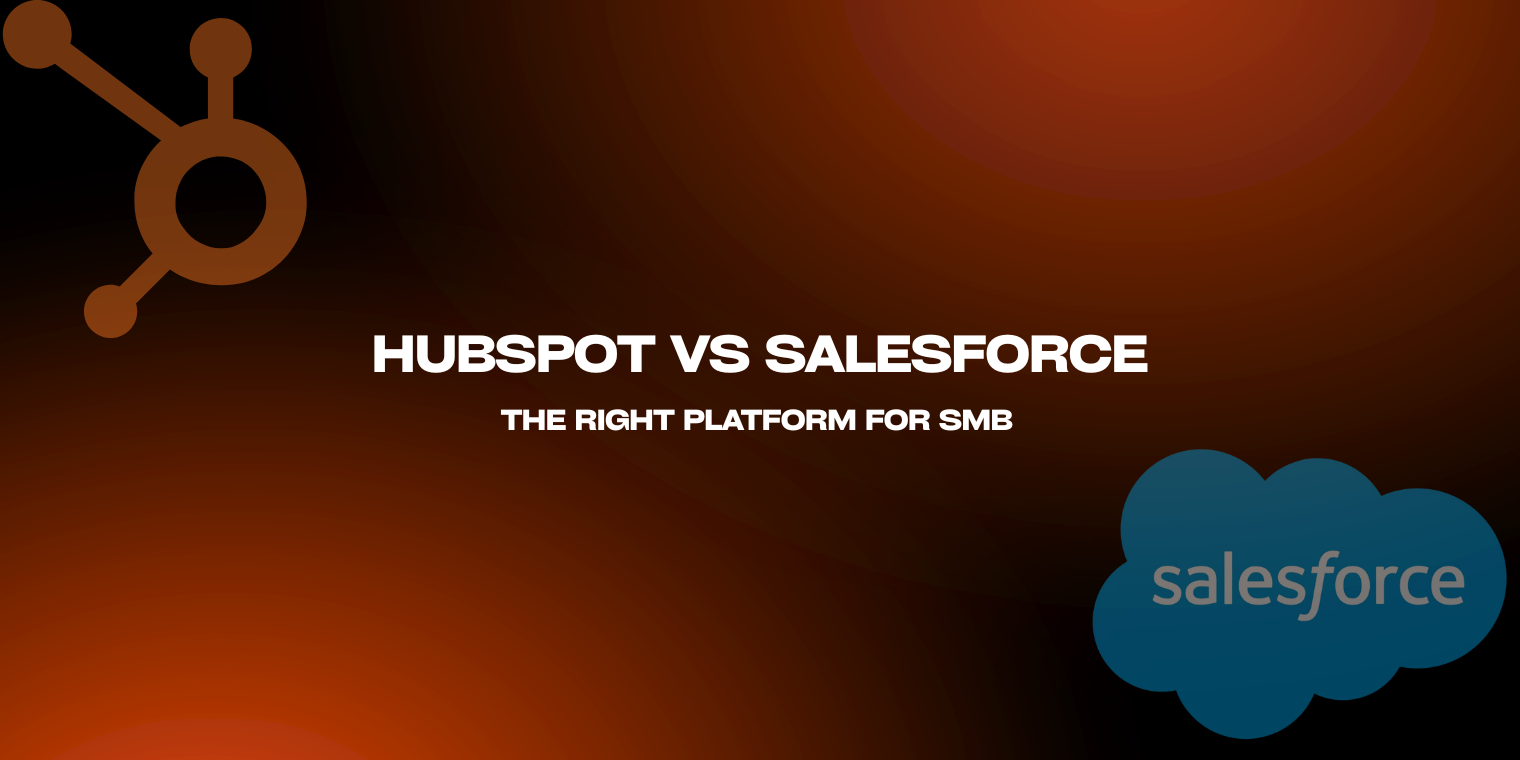

If you’re comparing HubSpot vs Salesforce for your small or medium-sized business, HubSpot is often best for ease of use and affordability, while Salesforce is better suited for scalability and customization. The right choice depends on your team size, budget, and growth goals. This CRM comparison for small business explores pricing, usability, customization, and scalability so you can make an informed decision.
Both HubSpot and Salesforce deliver comprehensive CRM capabilities designed to help businesses manage sales, marketing, and customer data management.
Let’s break down the details that matter most for SMBs.
HubSpot’s CRM offers an intuitive, all-in-one platform for marketing, sales, and service. Its tools integrate seamlessly, helping SMBs align teams, automate workflows, and centralize customer interactions. This makes it one of the best CRMs for startups and small businesses seeking simplicity.
Highlights:
Salesforce’s strength lies in flexibility and depth. Businesses can fully customize workflows, dashboards, and reports while accessing AI-driven insights through Einstein Analytics.
Highlights:
When reviewing Salesforce CRM pros and cons, scalability and flexibility are standout benefits, though they come with added (bigger) complexity and setup requirements.
Pricing is a critical factor for SMBs looking for affordable CRM solutions.
In short:
If you’re just starting or looking for predictable pricing, HubSpot may be the best CRM for SMBs. If you’re scaling fast, need advanced customization and know your way around not so user-friendly interface, Salesforce could be the better long-term choice. We'll come to that next.
HubSpot is renowned for its clean interface and drag-and-drop simplicity, ideal for SMBs without dedicated IT teams. Users can get started quickly, supported by responsive customer service and helpful onboarding resources.
Salesforce, while powerful, has a steeper learning curve due to its extensive features. However, once mastered, it provides unmatched control and customization.
Pro Tip:
SMBs with limited technical expertise often find HubSpot easier to adopt, while those managing complex sales processes benefit more from Salesforce’s adaptability.
If you need a plug-and-play solution, HubSpot wins. If your business requires deep customization and flexibility, Salesforce takes the lead. Yes, Salesforce and HubSpot have native integration between each other. So if you're considuring switching and migrating data from one tool to another, that is possible. We can help, just let us know!
Both platforms offer excellent educational resources and support options:
For smaller teams, HubSpot’s straightforward support and onboarding are ideal. Larger SMBs may prefer Salesforce’s in-depth technical resources and community support.
Pros:
Cons:
Pros:
Cons:
When it comes to the Salesforce vs HubSpot comparison, both are exceptional — but your choice depends on your stage of growth and priorities.
The best CRM for small business is the one that fits your workflow, budget, and long-term vision. Whether you’re a startup exploring your first CRM or an established SMB optimizing processes, both HubSpot and Salesforce can drive measurable growth and customer success.